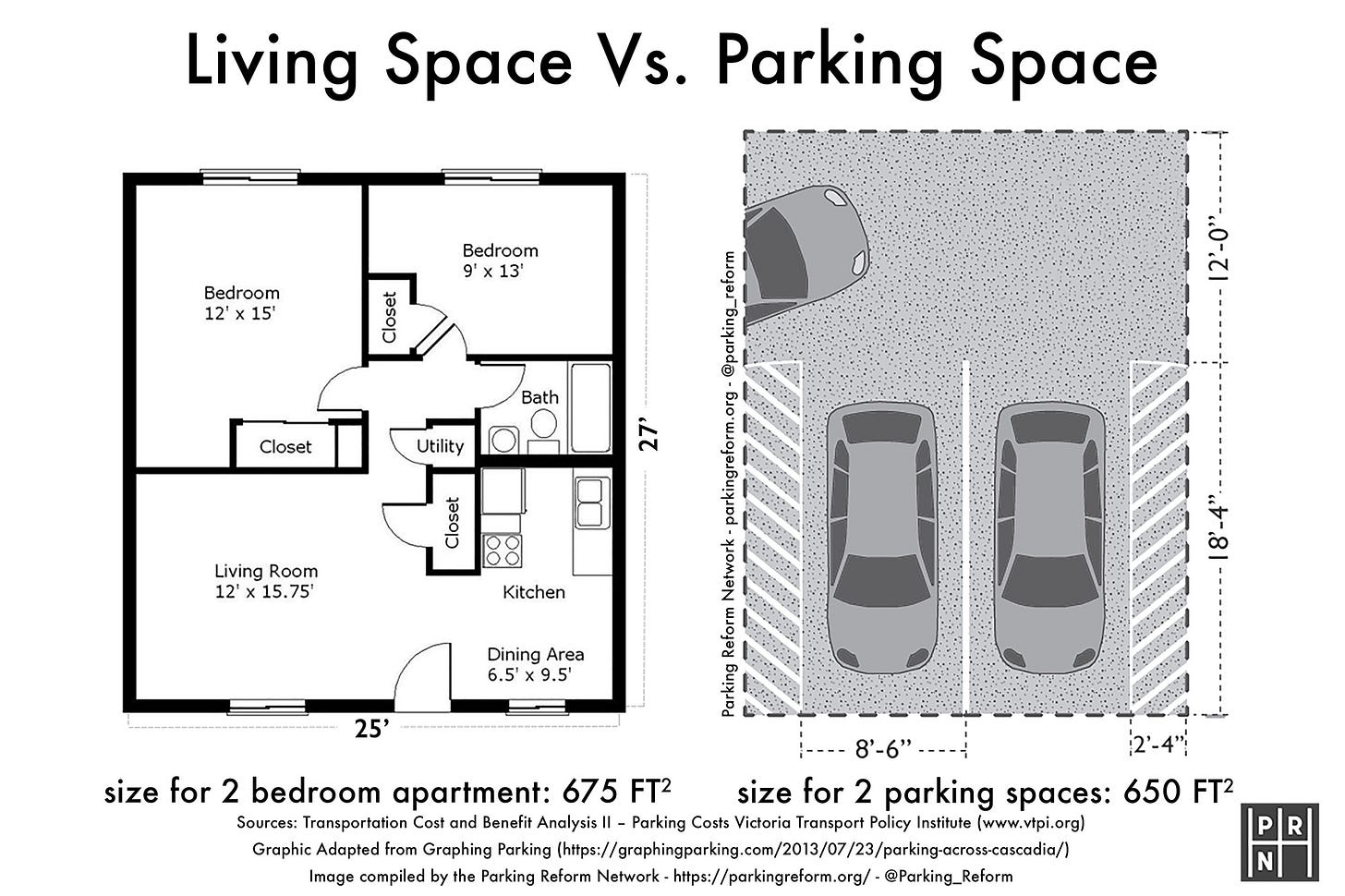End Parking Mandates. Build Better Cities.
HB 369 does just that, because we can't build housing when we prioritize parking.
North Carolina has the chance to take a bold step forward: ending parking minimums statewide. It’s a move that’s long overdue. One that would improve housing affordability, empower small businesses, and create stronger, more sustainable communities.
I’ve spoken out in favor of eliminating parking minimums before, including at the Raleigh public hearing to remove them. Surprisingly, I was the only person who showed up to speak in support of this simple but powerful change. The Raleigh City Council at the time understood the benefit and did vote to end parking minimums, but that experience underscored a key problem: people often underestimate just how much parking mandates quietly shape our cities and how much better things could be without them.

Mo…


